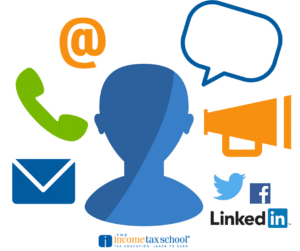Does this tax season seem a bit crazier than most? Between a new White House Administration (and the  changes that come when the party in power changes) and increased security from the IRS, things seem to be a bit askew. While it’s always important to communicate with clients, it’s especially important to communicate changes and updates – especially in a climate where people are unsure of what’s going to happen. Reaching out and being that guiding light or source for information helps build better relationships, establishes your reputation as a tax expert, and is good customer service. Here are three important pieces of information to communicate to clients this tax season.
changes that come when the party in power changes) and increased security from the IRS, things seem to be a bit askew. While it’s always important to communicate with clients, it’s especially important to communicate changes and updates – especially in a climate where people are unsure of what’s going to happen. Reaching out and being that guiding light or source for information helps build better relationships, establishes your reputation as a tax expert, and is good customer service. Here are three important pieces of information to communicate to clients this tax season.
Refund Delays
Have you communicated to clients that their refund will likely be delayed? This is a great way to encourage clients to come in earlier rather than later. The reason for the delay is due to legislation aimed at catching Tax ID theft and refund fraud. The legislation targets taxpayers filing for two federal tax credits: the Earned Income Credit and the Additional Child Tax Credit. The PATH Act requires the IRS to hold refunds claiming these two credits until February 15th.
The delays affect a very large group of taxpayers – a group that tends to spend more during the tax season. This is an important trend to report to your business clients as they will likely see a dip in consumer spending that could affect sales.
According to Spencer Hill, “Because a significant portion of households spend their income almost immediately — due to credit constraints or other factors — the refund delay could result in a pothole in consumer spending in February.”
The Affordable Care Act
Make sure your clients know that the Affordable Care Act has not yet been repealed. Even if it is repealed in the near future, it likely won’t affect the mandates put in place for 2016. This means that the following mandates still apply and need to be communicated to clients:
- Employers with 50 or more employees still need to fill out form Form 1094-C, Transmittal of Employer-Provided Health Insurance Offer and Coverage Information Returns, and Form 1095-C, Employer-Provided Health Insurance Offer and Coverage.
- Employers who did not comply with the Employer Shared Responsibility Provisions will still be expected to make an employer shared responsibility payment to the IRS.
- Individuals and families are still required to comply with the Individual Shared Responsibility Provision, which requires them to have qualified health coverage, report a health coverage exemption, or make a payment when they file their taxes.
IRS Scams
We will continue to stress the importance of following the latest tax scams and communicating them with clients. ID theft, tax ID theft, refund fraud, and tax preparer fraud are all serious threats this tax season. It’s important that you are communicating with clients what the latest phishing scams are, how to spot a scammer, and what the standard IRS protocols are for contacting taxpayers. You should also be aware of scams that are targeting tax preparers.
All of the latest tax scams can be found on our tax scam round-up blog, which is updated as new scams come out.
As a tax preparer, it’s important to keep clients in the loop. Informed clients are less likely to be victims of fraud and are more loyal to you as their service provider.
More great reads:
Refund Scams are on the Rise, Do Your Clients Know What They’re Up Against?
